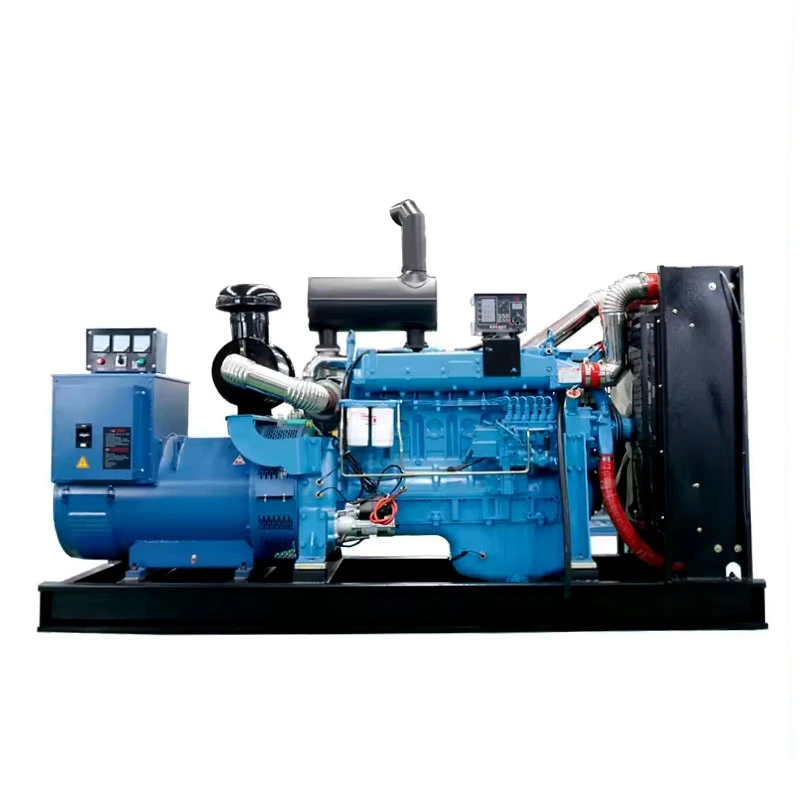Ensuring Compliance and Safety A Comprehensive Guide to Diesel Generator Certification Inspection
Introduction Diesel generators play a crucial role in providing backup power in various industrial, commercial, and residential settings. These generators are relied upon during power outages to ensure continuous operations and prevent disruptions. However, to ensure their safe and efficient operation, it is essential to conduct regular certification inspections. Certification inspections are vital to verifying that diesel generators comply with industry standards, regulations, and safety requirements. In this comprehensive guide, we will delve into the importance of certification inspections for diesel generators, the key components of the inspection process, and best practices to ensure compliance and safety. Importance of Certification Inspections for Diesel Generators Certification inspections for diesel generators serve several important purposes, including: 1. Compliance with Regulations: Diesel generators are subject to various regulations and standards set by regulatory bodies such as the Occupational Safety and Health Administration (OSHA), the Environmental Protection Agency (EPA), and the National Fire Protection Association (NFPA). Certification inspections help ensure that generators meet these regulatory requirements. 2. Safety: Diesel generators pose potential risks, including fire hazards, emissions of harmful gases, and mechanical failures. 200kw diesel generator for remote locations and maintenance are essential to identify and address safety issues promptly, reducing the risk of accidents and injuries. 3. Reliability: Diesel generators are critical for providing backup power during emergencies. Regular certification inspections help identify and address potential issues that could affect the reliability and performance of the generator when needed. 4. Warranty Compliance: Many manufacturers require regular certification inspections to maintain warranty coverage for diesel generators. Failure to comply with inspection requirements could void the warranty, leading to additional costs for repairs and maintenance. Key Components of Diesel Generator Certification Inspections Certification inspections for diesel generators involve a thorough evaluation of various components to ensure compliance with regulations and industry standards. The key components of a typical inspection include: 1. Fuel System: The fuel system of a diesel generator must be inspected to ensure that fuel tanks are in good condition, fuel lines are free of leaks, and fuel filters are clean and functioning properly. Proper fuel system maintenance is essential to prevent fuel contamination and ensure reliable operation. 2. Cooling System: The cooling system of a diesel generator, including the radiator, coolant levels, hoses, and water pump, should be inspected for leaks, blockages, and proper functioning. Overheating can lead to engine damage and reduced efficiency, making cooling system inspections crucial. 3. Electrical System: The electrical system of a diesel generator, including wiring, connections, control panel, and voltage regulator, should be inspected for signs of wear, damage, or corrosion. Proper electrical system maintenance is essential to prevent electrical failures and ensure safe operation. 4. Exhaust System: The exhaust system of a diesel generator must be inspected for leaks, damage, and proper ventilation to prevent the buildup of harmful gases such as carbon monoxide. Exhaust system inspections are crucial for ensuring the safety of operators and preventing environmental pollution. 5. Engine: The engine of a diesel generator should be inspected for signs of wear, leaks, and proper lubrication. Components such as pistons, valves, and gaskets should be checked for wear and replaced if necessary to ensure optimal engine performance. 6. Emissions: Diesel generators are subject to emissions regulations to limit the release of pollutants into the atmosphere. Emissions testing may be required as part of the certification inspection to ensure compliance with emission standards set by regulatory bodies. Best Practices for Diesel Generator Certification Inspections To ensure thorough and effective certification inspections for diesel generators, the following best practices should be followed: 1. Schedule Regular Inspections: Diesel generators should undergo regular certification inspections at recommended intervals, as specified by the manufacturer or regulatory requirements. Routine inspections help identify and address issues before they escalate and impact generator performance. 2. Use Qualified Inspectors: Certification inspections should be conducted by qualified and experienced technicians who have the necessary expertise in diesel generator maintenance and safety standards. Inspectors should be familiar with industry regulations and best practices to ensure accurate assessments. 3. Maintain Detailed Records: Keep detailed records of all certification inspections, including inspection dates, findings, repairs, and maintenance activities. Documentation is essential for tracking the generator's maintenance history, demonstrating compliance with regulations, and maintaining warranty coverage. 4. Address Issues Promptly: If any issues are identified during the certification inspection, they should be addressed promptly to prevent further damage and ensure the safe and reliable operation of the diesel generator. Repairs and maintenance should be performed by trained professionals using quality parts and materials. 5. Follow Manufacturer Guidelines: Adhere to the manufacturer's guidelines and recommendations for maintenance, inspections, and service intervals. Following manufacturer guidelines helps maintain the generator's warranty coverage, prolong its lifespan, and ensure optimal performance. 6. Conduct Load Bank Testing: Periodic load bank testing is recommended to verify the diesel generator's performance under load conditions. Load bank testing helps identify issues related to engine load capacity, voltage regulation, and overall system efficiency. 7. Stay Informed: Stay informed about the latest industry standards, regulations, and best practices related to diesel generator certification inspections. Regular training and education for maintenance staff can help ensure compliance with evolving requirements and technologies. Conclusion Certification inspections are a crucial aspect of maintaining the safety, reliability, and compliance of diesel generators. By following best practices, conducting thorough inspections, and addressing issues promptly, operators can ensure that their generators are ready to provide backup power when needed. Compliance with regulations, adherence to manufacturer guidelines, and regular maintenance are essential to maximize the lifespan and performance of diesel generators. By prioritizing certification inspections and investing in proper maintenance, operators can safeguard their assets and ensure uninterrupted power supply during emergencies. 